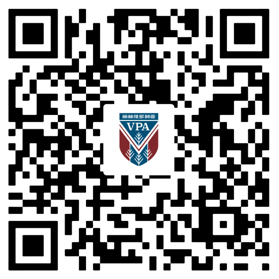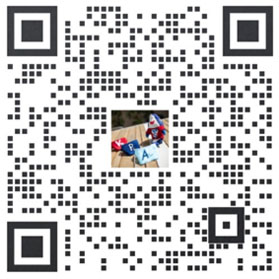Building on the high-quality national curriculum, we implement immersive bilingual education to form a bilingual bi-cultural integrated school curriculum featuring Language Literacy, Technology and Innovation, and Holistic Education.
Course Structure
Foundation Courses: Teaching content follows in strict accordance with the national curriculum standards and the Shenzhen annual curriculum plan.
Inquiry-Based Courses: The inquiry-based courses are project-based in-depth learning through transdisciplinary themes. By combining school and regional features and utilising multiple resources inside and outside the school, we aim to promote students' agency when solving real-life problems. This also emphasises connecting with the community and breaks boundaries between disciplines.
Expanded Courses: We offer various courses including Humanities, Wellness Programmes, After-school Activities, Sports, Community Service, Chinese Cultural Programmes, and Mindfulness Programmes, in both restricted and non-restricted formats, according to students' individual needs.
Columbia University Literacy Program: The program, which has been used by schools for more than 35 years, originated from the Columbia University Teachers’ College. Empirical research has proved that the program can effectively cultivate students' independent reading ability and habits, improve reading and writing skills, and enable students to express themselves confidently. We have accumulated a wealth of practical experience and developed a unique bilingual reading system, which has achieved remarkable results in Hong Kong. By adopting this program, we aim to support students to become lifelong learners who love to read and are diligent in their creative work.
Reading and Creation of Picture Books: We have developed a systematic Picture Book Reading and Creation Program. Students will have the opportunity to meet with picture book authors and illustrators, according to the themes of the picture book used, to gather information to create their own work under teachers' guidance and publish their work. This opportunity assists students in developing skills to express themselves, build self-confidence, and unlock their full potential as strong readers and writers.
At VPA, learners are passionate about exploring the wider world and their place in it. Through effective use of technology, learners develop and apply strategies for critical and creative thinking, engage in inquiry, make connections, and apply new understandings and skills in different contexts. The STEAM programme equips VPA students with the necessary skills and attitudes to help them become responsible and productive problem solvers, innovators, and industry leaders on a global scale.
STEAM: We provide students the opportunity to explore ideas and solve problems, with guidance from teachers, through the effective use of innovative labs and technology. Experiential learning sessions are arranged to allow students to engage in inquiry, make connections, and apply new understanding and skills.
The Mathematical Mindsets Course: Stanford University School of Education Professor Jo Boaler proposed a teaching method for low-floor high-ceiling tasks. Through visualisation of open-ended problems, students are asked to use their imagination to organise their solutions. At the same time, students are given the space to explore high-level mathematical concepts, from which they can gain a growth mindset and confidence in solving mathematical questions.
Design Thinking: This process empowers individuals to cultivate their capacity for solving intricate problems and constructing ground-breaking solutions by fostering a transformative mindset. VPA encourages students to identify and define problems, challenge assumptions, build prototypes, and test results.
Digital Technology and Information: VPA students participate in a Digital Citizenship programme to equip them with the necessary skills and attitudes to help them become responsible and productive global citizens.
Transdisciplinary and Interdisciplinary Learning: Drawing on the IB curriculum philosophy, we aim to enhance students' ability to adapt to future development, better integrate Humanities and Science, develop time management skills through multi-tasking, and cultivate all-rounded talents. We assist in developing students' critical thinking skills and comprehensive learning ability through Inquiry-based Learning and Approaches to Learning including;
- Thinking Skills,
- Research Skills,
- Communication Skills,
- Social Skills, and
- Self-Management Skills.
Nature Inquiry Curriculum: Living in modern urbanised cities, children are generally disconnected from nature, resulting in reduced sensitivity to the environment around them. VPA has a unique natural environment that allows teachers to apply teaching pedagogy and concepts of forest school to foster children's exploration and awareness of nature in learning to live in harmony with the natural surroundings.
Mindfulness and Meditation Education: Mindfulness is a modern life skill that has been proven by contemporary brain science to help students improve focus and cope effectively with stress. Students learn to be mindful of their breath to relieve stress and balance their minds and bodies. The practice of mindfulness has numerous benefits, including;
- Enhance self-awareness,
- Reduce impulsive behaviour,
- Improve concentration,
- Foster creativity and discernment,
- Inspire empathy and charity, and
- Build a better connection to society.
Wellness Programme: It has been well-researched that wellness development not only leads to improved academic outcomes, but also improves students' self-management, effective communication and leadership, managing emotions, establishing and maintaining positive relationships, and developing self and social awareness. It is an integral part of holistic education and human development. Based on students' cognitive development and specific needs, VPA cultivates students' socioemotional competencies through the unique Wellness Programme, alongside explicit and implicit teaching embedded in the curriculum design, helping them confidently navigate the challenges in their future academic, personal, and social lives.
Quality Education in the Community: VPA has a professional teaching team and a growth-oriented community environment to support students learning and development. We provide a platform to showcase students' work and achievements so that they can enrich their knowledge, build friendships, and increase their sense of accomplishment and happiness through interaction.

Official account (wechat)

Consulting wechat

© 2022 Victoria Park Academy Guangdong ICP Bei 2022059145 -1 Business license Network support: Anshan Longcai
Some resources of the website come from public Internet channels. If there is any infringement, please contact our company for deletion.

